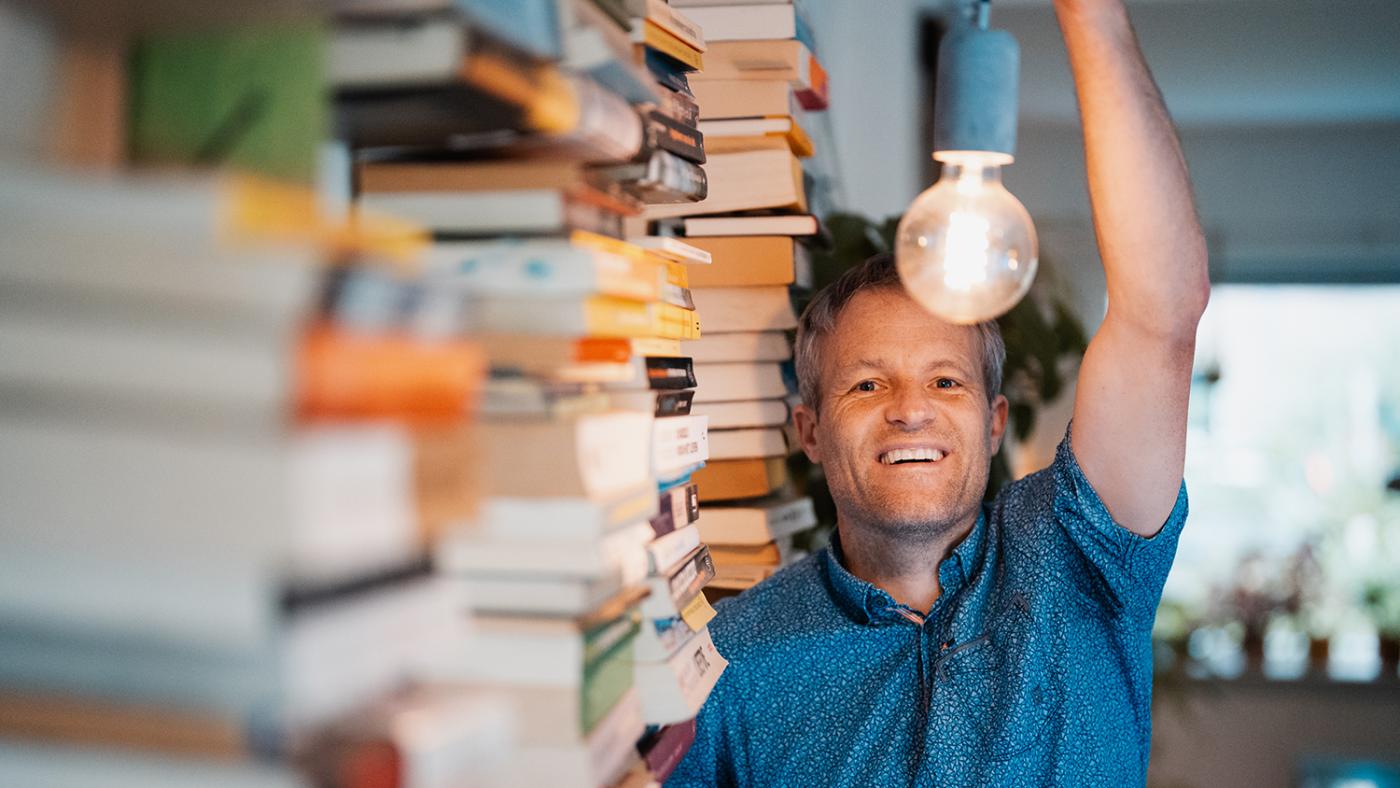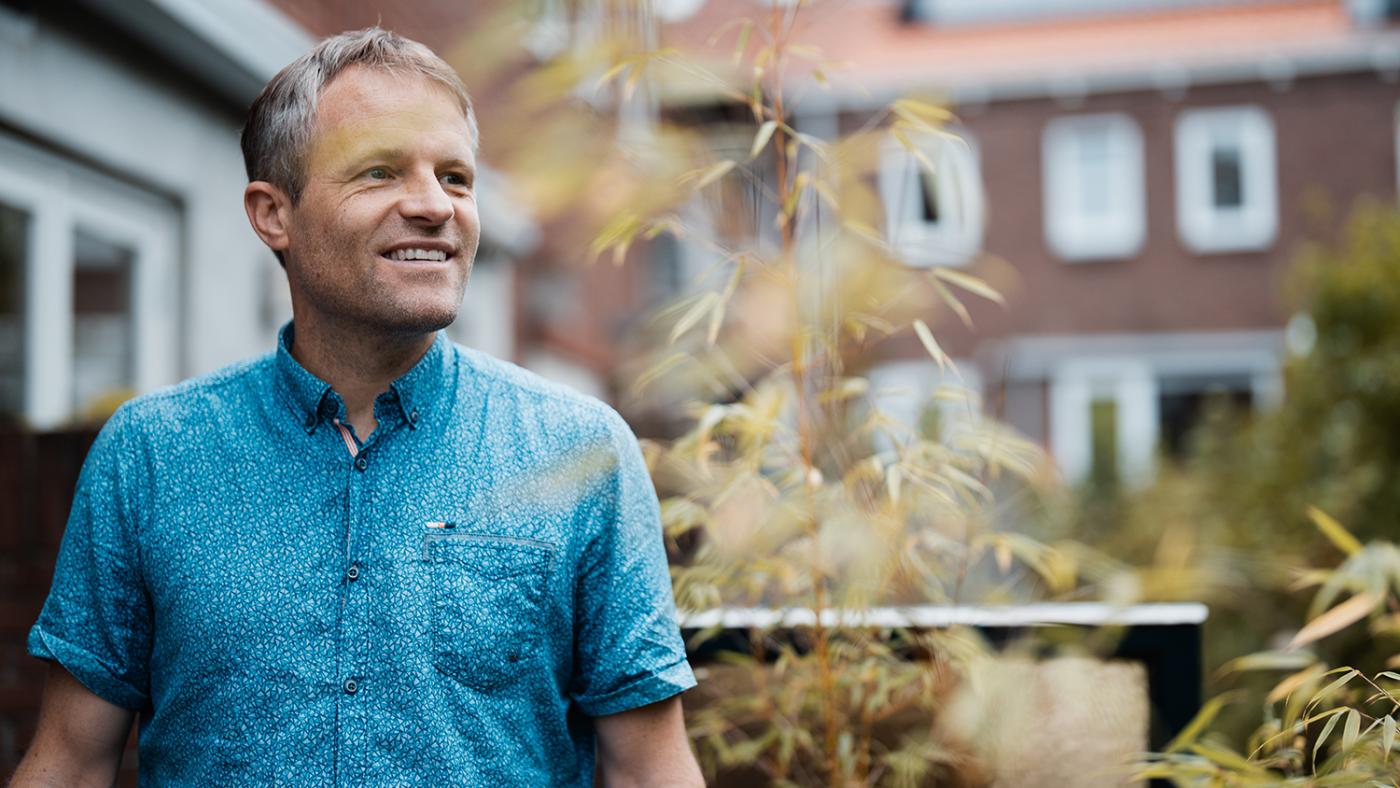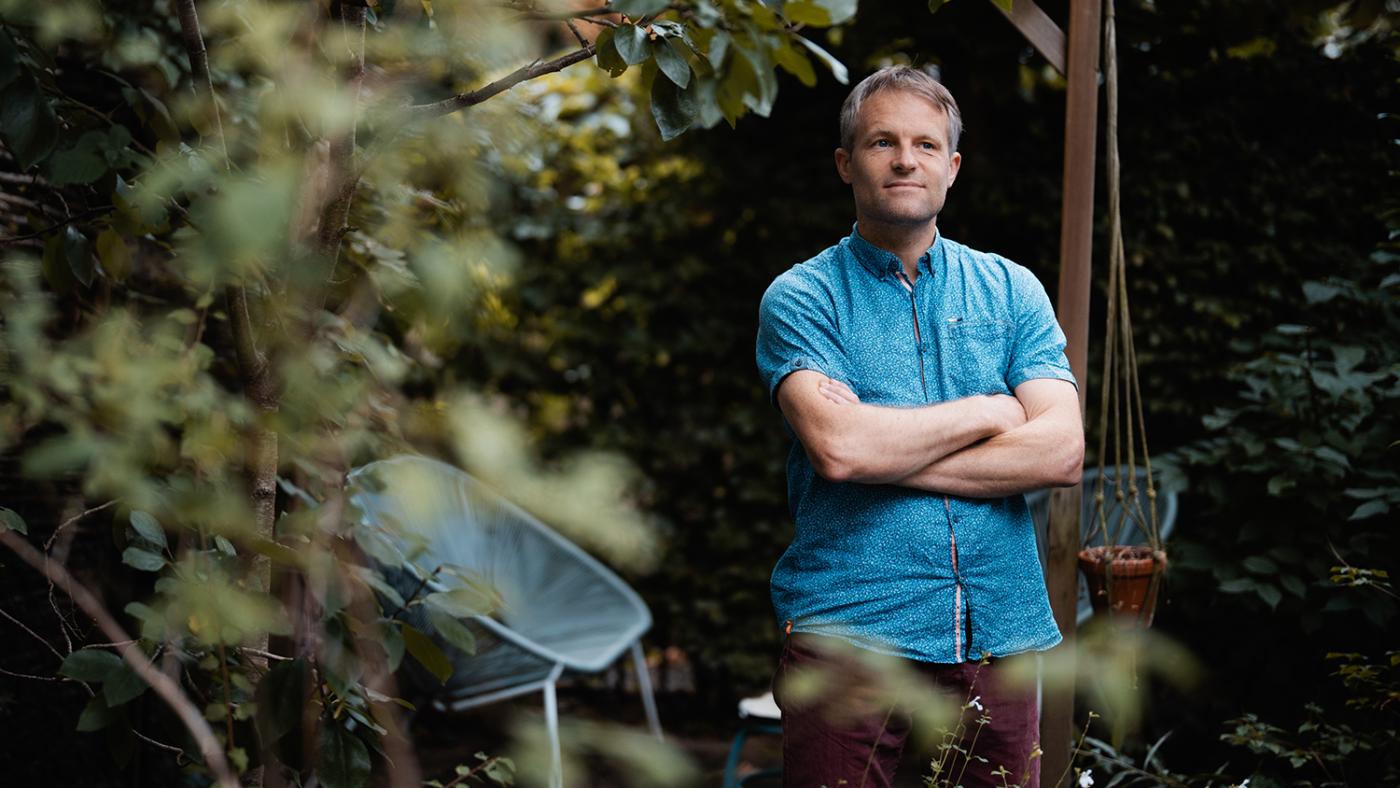Sloppy science
How fabricated data, fake journals and counterfeit conferences are polluting science

If there is one thing Stan van Pelt cannot stand, it is when academics use sport-related metaphors to describe their work. A few years ago, Marcel Levi, the chair of the Dutch Research Council (NWO), wrote in a column that science is akin to 'top-level sport'. Other researchers refer to it as the 'Champions League'. In Van Pelt's view, that is exactly what is going wrong with science today. 'It's not about individual achievements, it's about the team.'
There is much that is going wrong in academia, the journalist and former researcher reveals in his book Sloppy Science, which is due to be published this week. Many of the careless and fraudulent practices he describes in his book can be directly traced back to a competitive atmosphere that has prevailed in academia for far too long. Major awards, such as the Nobel Prize and the Dutch Spinoza Prize, are awarded to individuals, not research groups. ‘The term “prize” says it all,’ Van Pelt argues. ‘As if a grant were a prize that you can win. No, it's a sum of money that you receive to do your research.’
In Sloppy Science, Stan van Pelt delves into well-known cases of fraud (such as the one involving the Dutch social psychologist Diederik Stapel), writes a fake article with the help of AI to show how easy it is to publish nonsense, and visits a fake conference in Budapest – featuring real professors and bottles of water on set tables. In over 300 pages, the journalist describes how scientists sometimes stray from the path and tarnish the reputation of the entire academic world in their pursuit of scarce research funds and sparse career opportunities.

Was everything ever hunky-dory in the scientific community?
'Well, it was never completely hunky-dory, but that applies to every sector. However, I believe things have got a bit out of hand over the last 25 years, when neoliberalism came to dominate the scene and former state-owned companies, such as the Dutch railways and the Dutch Post, were privatised. The funding system for universities changed around the same time. Dutch universities used to receive a fixed amount of money to conduct research as they saw fit; however, scientists are now increasingly required to apply for grants from the Dutch Research Council (NWO). They must provide detailed research plans in return for those grants.'
At the same time, you write that the number of PhD candidates has increased exponentially.
'Yes, in 2005, there were 7,000 PhD candidates in the Netherlands, and by 2023, the number had almost doubled. A scientific career used to be something for enthusiasts and nerds, but now the PhD system has become a juggernaut. It has become a pyramid with very few permanent jobs at the top and an ever-wider base of young people at the bottom who are eager for a position. Only one in twenty PhD students becomes a professor, so you can imagine how fierce the competition among them is. They are all competing for jobs and money. These are perverse incentives that lead to numerous problems.'
Malicious journals
For the author, who has worked as a researcher for fifteen years, embellishing research results to get an article published is not even the biggest problem. Van Pelt considers the malicious journals that are springing up like mushrooms to be much worse – and more threatening. The 'editors' of these publications approach researchers to ask if they would like to submit an article for a hefty fee. However, there is no real editor at all, and peer review, as is customary in genuine scientific journals, is completely absent. Earlier this year, Van Pelt submitted a completely fabricated article that was accepted without question, despite explicitly stating that no experiment had ever taken place. Researchers will go to great lengths to expand their publication lists, and fake journals exploit this in a devious manner, with hardly anyone checking on them.
Van Pelt calls the article factories – often located in Iran or China – 'truly criminal'. For a fee, they write entire articles, sometimes with the assistance of AI, on behalf of scientists who lack the time to do so themselves. These businesses often operate in non-Western countries where universities' internal control is often poor or non-existent. The content of such articles is usually complete nonsense.
Why is that so bad? One could argue that scientists can figure out the legitimacy of an article themselves.
'Fellow researchers do not always know that the data is fake or that an experiment has been exaggerated. They cannot know that there were only ten test subjects instead of the hundred or thousand mentioned in the article. However, the results are included in overview analyses, and medical guidelines are based on them. I have spoken several times with Ben Mol, a Dutch Professor of Gynaecology at Monash University in Australia, who is outraged about this situation and is trying to stop such practices. He says that women and babies are dying because we are allowing this to happen. Incorrect data is a kind of fake news that is polluting the entire scientific literature.'
How can academia's health be restored?
'First of all, I should mention that my book is about excesses. Many things are going well, and there is a considerable grey area between someone like Diederik Stapel, who fabricated entire studies, and someone who adheres to every detail. However, I think we need to return to the old funding system, even if only partially, so that less money is distributed through NWO and more money is allocated to universities. We must eliminate funding schemes that often last only four years, the exact duration of a PhD programme, as that would allow universities to hire more people on a permanent basis. Currently, 56 per cent of scientists are on temporary contracts. Among PhD students, this figure is almost 100 per cent, even though they do most of the scientific work. If universities had more permanent jobs to offer, competition would naturally decrease, the workload would be reduced, and the perverse incentive to commit fraud would disappear. At the same time, you would have to limit the influx of PhD students, because there are not enough places for them, and society does not need so many people trained at that level.'
In your book, you write that there should also be an inspection service for science.
'Yes, I advocate a better control system. All professional groups that we consider important have inspections, such as the Food and Consumer Product Safety Authority, or the Health and Youth Care Inspectorate. Why doesn't science have something similar? Someone who drops by every now and then to ask what your data looks like and what analyses you have done exactly? To stay within the sports analogy, why do cyclists use doping? Because they want to be the best and go beyond the rules to compete. That is why doping controls have been introduced: every day, someone knocks at your door to check your urine. Scientists also want to push the boundaries and score. It doesn't have to be that extreme in science, but it would be good if researchers thought "Hey, I've got to make sure I have everything in order” more often.'
Don't all universities already have a committee for scientific integrity? We also have the National Body on Scientific Integrity (LOWI).
'These committees only investigate fraud if someone raises the alarm. Until that moment, everyone assumes that everything is in order. That is how Diederik Stapel was able to maintain his deception for so long. Moreover, the judgments made by these integrity committees are advisory in nature. A board of directors can decide for itself what to do with the advice. If it were up to me, we would make such a ruling binding. A scientist who has overstepped the mark could be excluded from research for two years, or in a more serious case, dismissed. Currently, that almost never happens. Monitoring could also be made more accessible: let's introduce a four-eyes system. Before a researcher sends a publication out the door, someone else must check it to ensure that all the calculations and analyses are correct. Mistakes often creep into research simply because someone does not have a sufficient grasp of statistics.’

Trust in science
Van Pelt also believes that reputable scientific journals should take action sooner when fraud investigators, such as Ben Mol mentioned earlier, express doubts about a particular article. Additionally, the academic world should reconsider publishing its own professional journals. Professional associations once had their own magazines, but many of them have since disappeared with the rise of commercial publishers such as Springer Nature and Elsevier. ‘In Nijmegen, you have Radboud University Press, which could also take on that role. In certain fields, such as linguistics, scientists can already be seen reviving their own journals and discontinuing their editorial work for commercial parties. These are commendable initiatives.’
In Van Pelt's view, there is a lot at stake. The Dutch population still has an elevated level of trust in science, which should not be jeopardised. A recent report by the Rathenau Institute states that people in the Netherlands give science a score of 7.4, indicating that the sector scores higher than all other institutions surveyed, including the judiciary and the House of Representatives. ‘Fortunately, science has a lot of credibility, and rightly so. It must address its dark sides more seriously if it wants to maintain that trust.’
Stan van Pelt (1978) worked as a researcher from 2002 to 2017. His scientific career includes positions at the Donders Institute in Nijmegen and Frankfurt. He went on to become a science journalist after that. Between 2019 and 2022, he served as an editor at Vox, the university magazine of Radboud University in Nijmegen. He now writes as a freelancer for Vox and the Dutch newspaper De Volkskrant, among other outlets. In 2023, he published the book Hack je hersenen (Hack Your Brain, Ed.), about brain research.
This article was written by Annemarie Haverkamp from Vox, the university magazine of Radboud University in Nijmegen.
Comments
We appreciate relevant and respectful responses. Responding to DUB can be done by logging into the site. You can do so by creating a DUB account or by using your Solis ID. Comments that do not comply with our game rules will be deleted. Please read our response policy before responding.